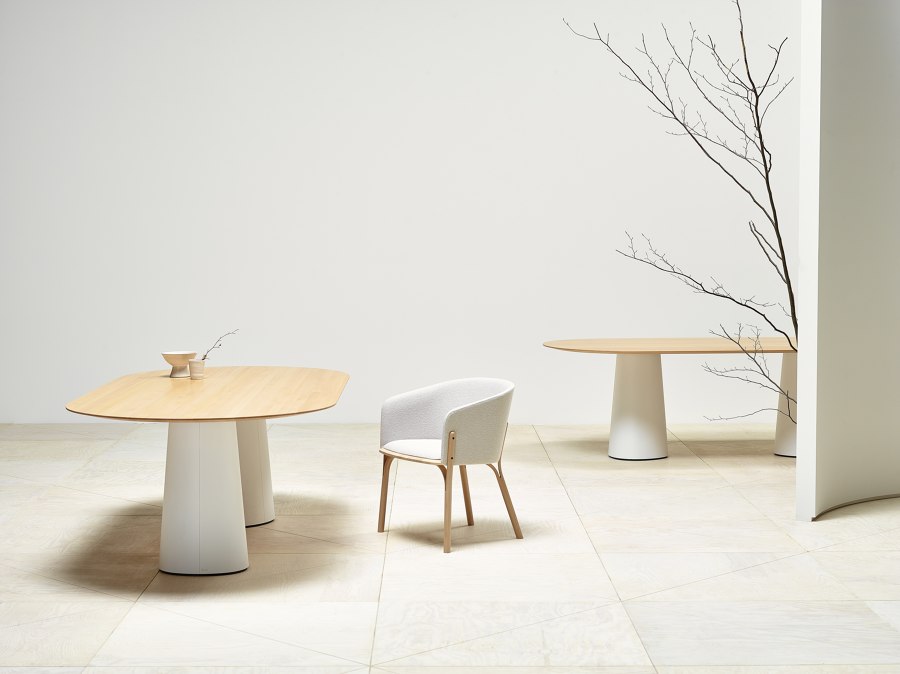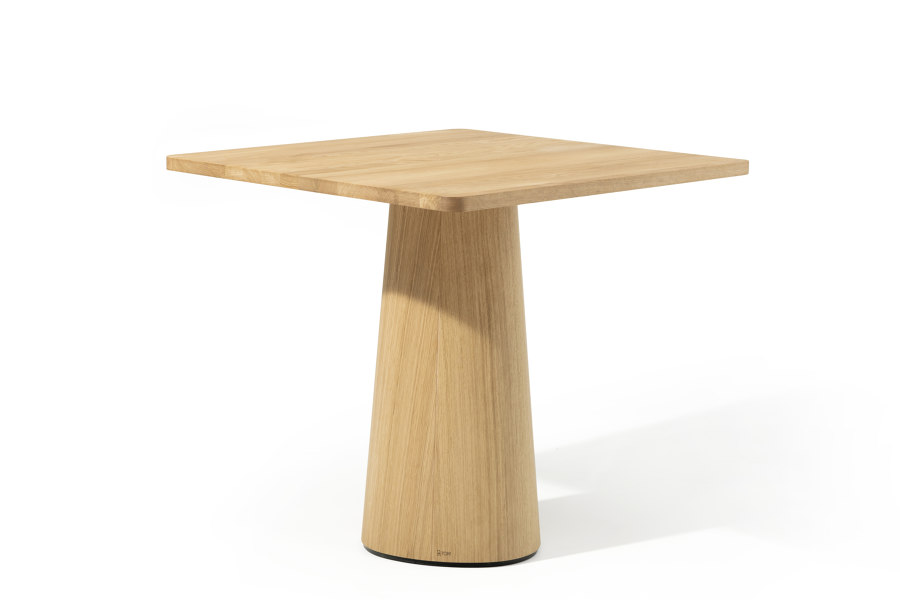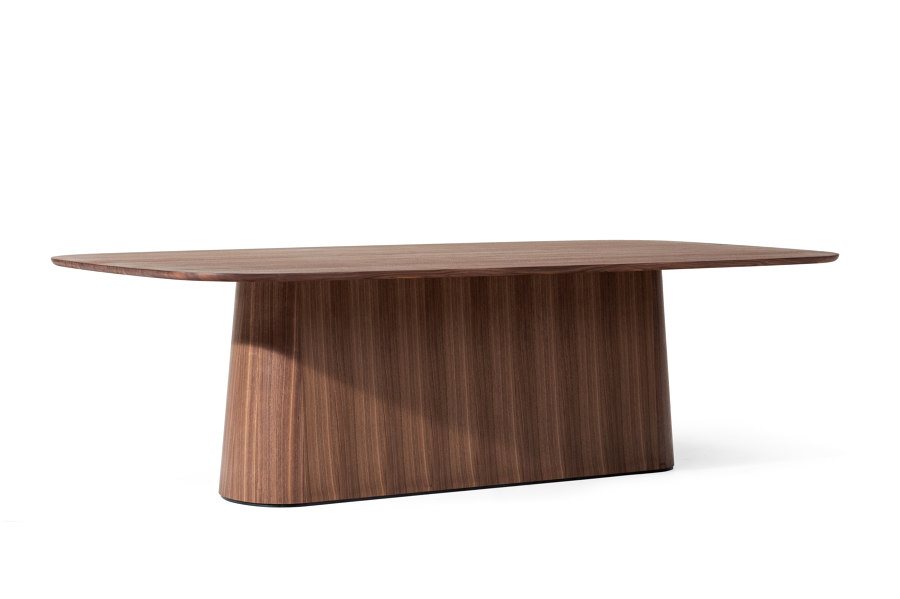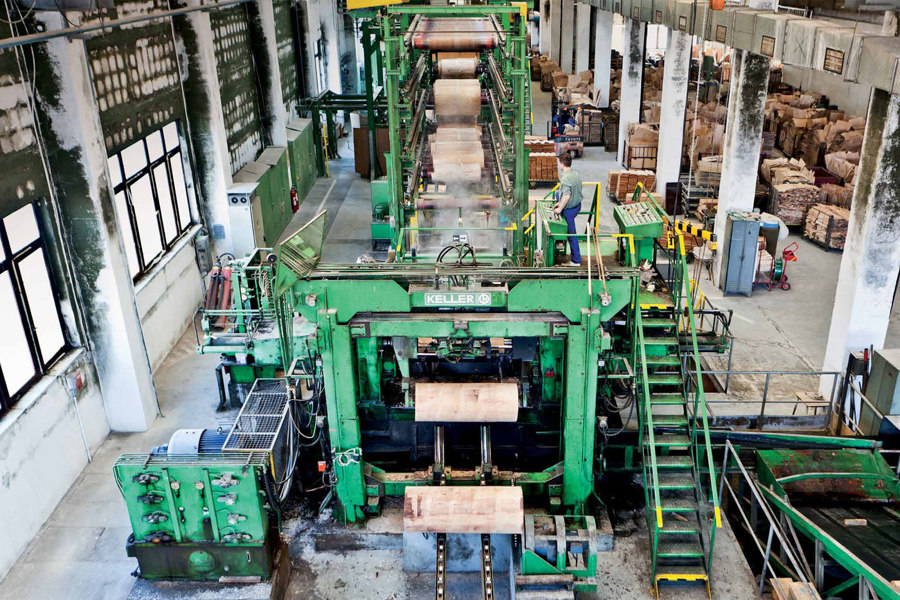I’ll be who you want me to be: TON’s new P.O.V. table
Historia de la marca de Emma Moore
Bystřice pod Hostýnem, Chequia
15.04.21
German design duo kaschkasch’s new P.O.V. table family for Czech wood-bending experts TON is as versatile as the material it celebrates.
Cologne-based designers kaschkasch developed the unique features of the P.O.V. table, playing off each other until the perfect balance of eye-catching form and quiet function were found
The amount of change circling around us at the moment is bewildering. Coping with uncertainty has become an international sport; one that families, institutions and business are all engaged in. For the business of design, the answer is versatility. With societal norms unravelling as fast as the ecological balance, creating new products has to come with serious circumspection; What is the environmental impact, how many applications can we give it? Will the design endure? Can one design mould and transform into multiple spaces and uses? Can it multi-task as desk and dining table, make a statement where a statement is needed? Blend in when there’s no room for starry behaviour?
kaschkasch is a German design studio formed by Sebastian Schneider and Florian Kallus. Cabinet makers by training, they are fascinated by wood and its possibilities – something they share with TON
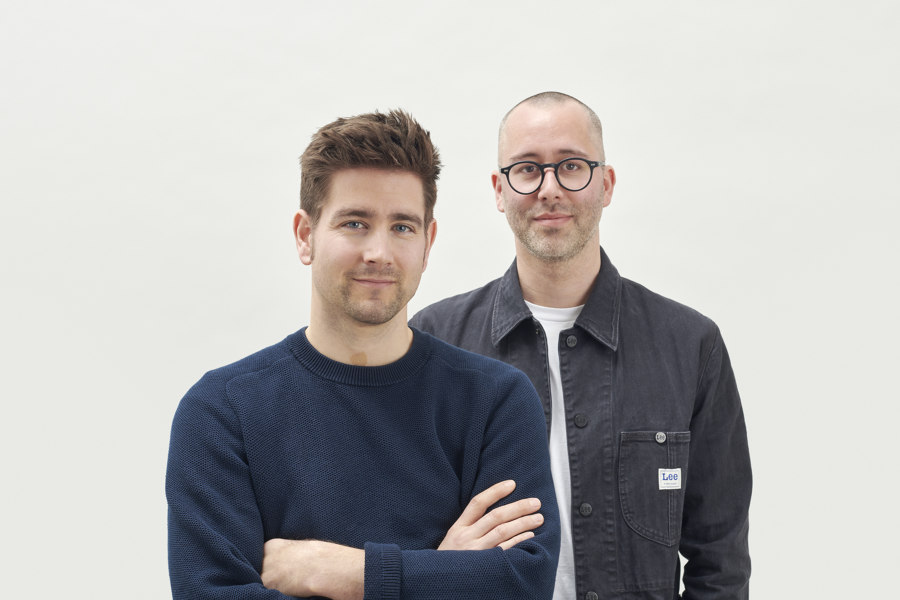
kaschkasch is a German design studio formed by Sebastian Schneider and Florian Kallus. Cabinet makers by training, they are fascinated by wood and its possibilities – something they share with TON
×These questions were at the forefront of the plans for TON’s latest table design, P.O.V., made in collaborations with German design duo, kaschkasch. ‘P.O.V. is simple and timeless. The design is very restrained but at the same time can also become the central eye-catcher in the room,’ says kaschkasch’s Sebastian Schneider of his creation with partner Florian Kallus. The table’s central feature is a sturdy pedestal, apparently conical, but in fact, softly triangulated in cross-section, and the whole is impeccably crafted to last by the Czech manufacturer. ‘The changeability and versatility are what makes P.O.V.’
The distinctive sculptural shape of the P.O.V. table can make a bold statement, or quietly blend into its surroundings, depending on how it is styled. It pairs beautifully with TON’s bentwood chairs
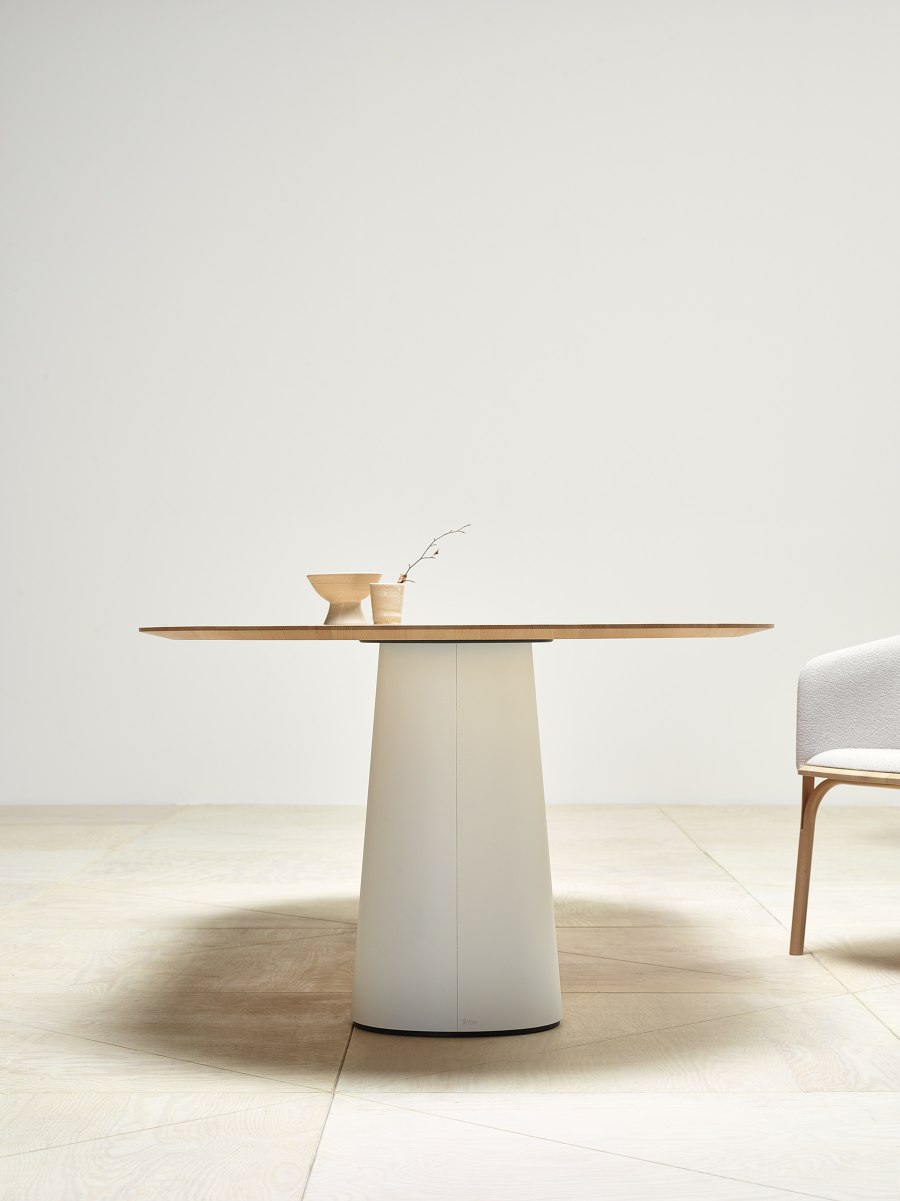
The distinctive sculptural shape of the P.O.V. table can make a bold statement, or quietly blend into its surroundings, depending on how it is styled. It pairs beautifully with TON’s bentwood chairs
×The designer-maker match was made when Alexander Gufler, a longtime acquaintance of kaschkasch and fellow designer, became TON’s artistic director. ‘We are both cabinet makers with a fascination for wood. This is our shared DNA,’ says Kallus. ‘As a design duo, we try to find the perfect balance of function and emotion in our designs and for TON too, function is writ large and emotion comes through the form of material, manufacturing process and history,’ adds Schneider.
Schneider and Kallus were trained in cabinetry before they founded their Cologne-based studio, kaschkasch, in 2011, and this expertise has informed their design work for Hay, Menu, Zeitraum and Schönbuch among others. TON, meanwhile, is a furniture-making company based on the site of Thonet’s original production facility at Bystrice pod Hostynem in the Czech Republic. It has built on the wood-bending processes that Michael Thonet introduced there in 1861, by combining this expertise with new design technologies, and uses the high-quality sustainable beechwood that is available locally. ‘We handle the whole story of a product, from adapting designs, to prototyping and making,’ says Anna Handlová, TON’s chief marketing officer. ‘We are more than 600 people and most of the work is still done by hand.’
The P.O.V. family has a large number of variables, from the size and shape of the top, to the number of pedestals. There’s even an extended pedestal for longer versions and a matching stool
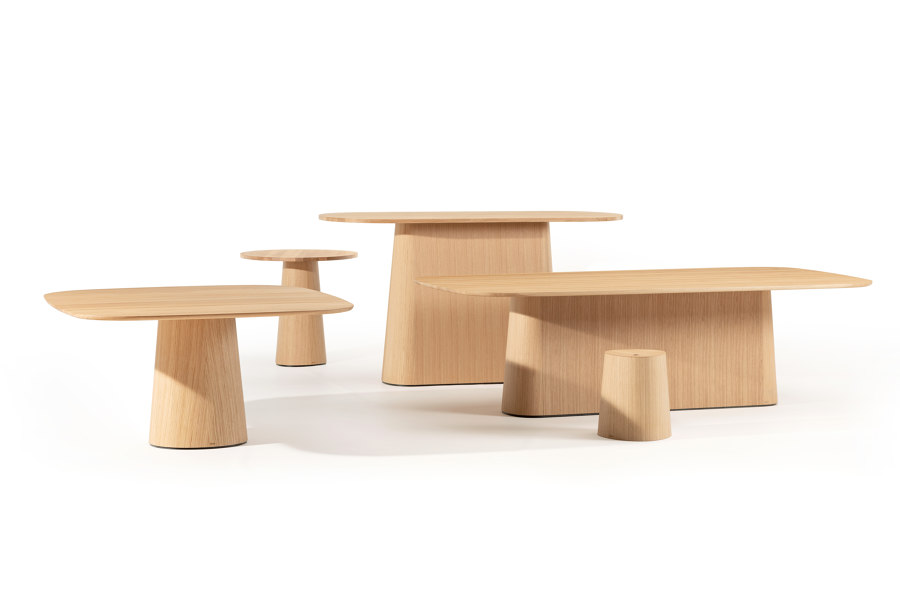
The P.O.V. family has a large number of variables, from the size and shape of the top, to the number of pedestals. There’s even an extended pedestal for longer versions and a matching stool
×Meeting its brief, the P.O.V. family of modular tables fits seamlessly into the existing TON collection and uses its wood-sculpting prowess, while at the same time offering something new, that adapts to use in bars, restaurants, conference rooms and homes. ‘The conical base is made from three equal bow segments pressed from plywood, bringing a firm stand that contrasts with the fine lines of the bentwood chairs,’ says Schneider.
Versatility also comes in the choice of materials and finishes that can be worked into the design, from solid wood to veneer, lacquered or stained, uniform across the piece or with contrast built-in
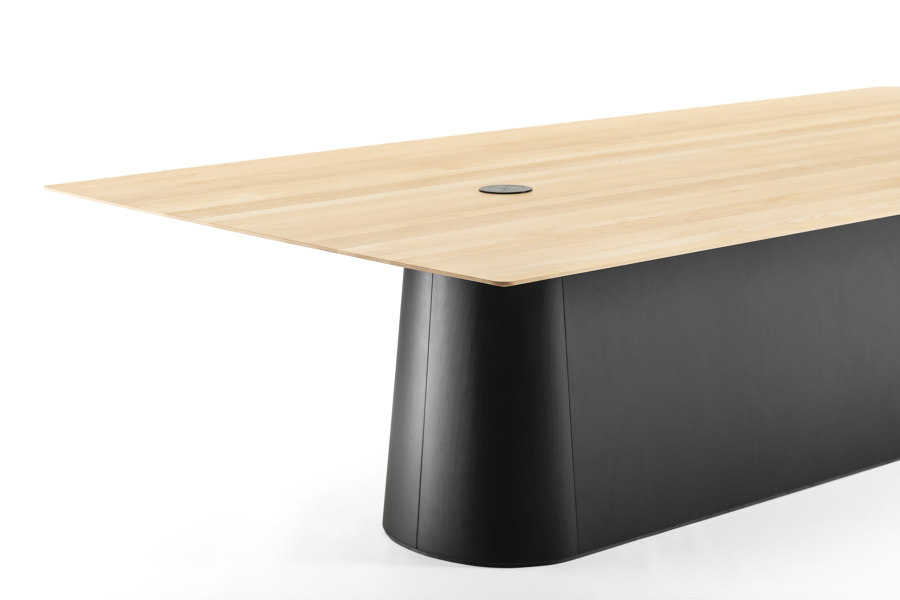
Versatility also comes in the choice of materials and finishes that can be worked into the design, from solid wood to veneer, lacquered or stained, uniform across the piece or with contrast built-in
×The innovative shape of the pedestal is P.O.V’s signature, while other elements of the design vary. The top can be round, square, rectangular or something in between, and comes with a chamfered, rounded, or straight edge. Surfaces are veneered or solid wood, lacquered or stained. The table can come with one pedestal or two, or for the ultimate statement, an extruded pedestal that stretches almost the length of the surface. A stackable stool has also been added to complement the design.
P.O.V is produced in the same workshops in the Czech Republic that have been used to make bentwood furniture since 1861. Many of the processes are still carried out by hand
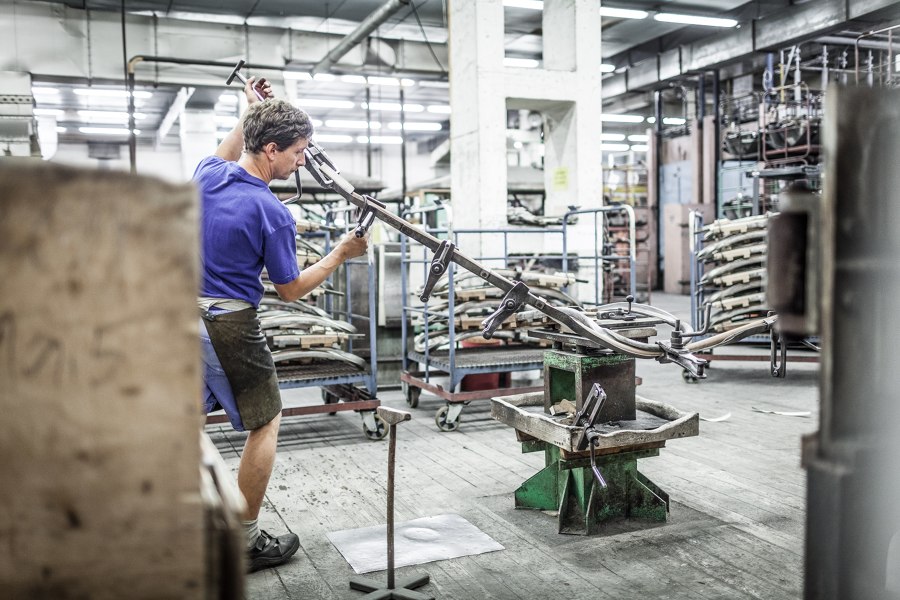
P.O.V is produced in the same workshops in the Czech Republic that have been used to make bentwood furniture since 1861. Many of the processes are still carried out by hand
×Even the table’s name hints at its mission to be malleable. Standing for ‘point of view’, it reflects the different ways the design can be read, and by extension how it is used. ‘In the studio, we always try to confront each other with different perspectives to understand each other’s thinking,’ says Kallus. ‘Debate is part of our way of working and this project with TON makes our way of working a concept.’ Right now this is exactly what we need new furniture to do. Adapt to your point of view, wherever you end up standing.
© Architonic



